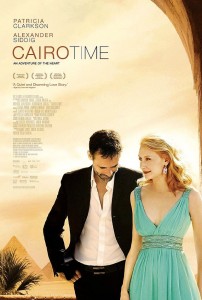

After spending almost NO time at the cinema this summer, I’m on another film kick. Forget “Eat Pray Love” as the so-called thoughtful “chick flick” of the season. For me, the UrbanTravelGirl must-see movie is “Cairo Time,” an absolutely breathtaking film that places the ancient-yet-modern and chaotic Egyptian city of Cairo in a starring role.
I recently raved about “Cairo Time” in “TCW Travel Connection,” the blog I write for the monthly Today’s Chicago Woman magazine. (I hope you’ll check it out!) But beyond making me think long and hard about the movie’s central premise—that “sometimes you need to forget the rules and follow your heart”—and inspiring me to see it twice, this travelogue of a film has me SERIOUSLY thinking about booking a trip to Cairo.
As I’ve said before, even I think it’s a shame that I’ve traveled countless times to Europe but have yet to set foot on the African continent. And while South Africa and Senegal also are on my visit-Africa “wish list,” Egypt’s always been at the top.
I’ve already started checking out flights between Chicago and Cairo, trying to figure out which of American Airlines’ partner airlines fly there so I can trade in some hard-won frequent-flyer miles. I haven’t yet checked out places to stay, but when on the road in foreign countries, I try to avoid large American-branded hotels. Perhaps a small locally owned boutique place, a seaside resort, or even a last-minute all-inclusive might work. But the point is to GET THERE!! My mom has always talked of wanting to visit Egypt, but has frequently deferred the dream because of fears of terrorism. I’m hoping to talk her into going, as we’re far safer on the streets of Cairo than on the South Side of Chicago!
So here’s the deal: you guys know I love traveling alone. But tell me—if you’ve been to Egypt (or even LIVED there!), is it a bad idea for a single woman to go strolling the streets of Cairo by herself, or does the city just get bad PR for that? (If you watch “Cairo Time,” you’ll see leading lady Patricia Clarkson frequently harassed—but she’s blonde and doesn’t cover her hair. At least I’d blend in much better with my Egyptian brothers and sisters!) Is it a place you’d wholeheartedly recommend?
Let me know what you think!
(This post is supported by Luxury Villas Maui.)

